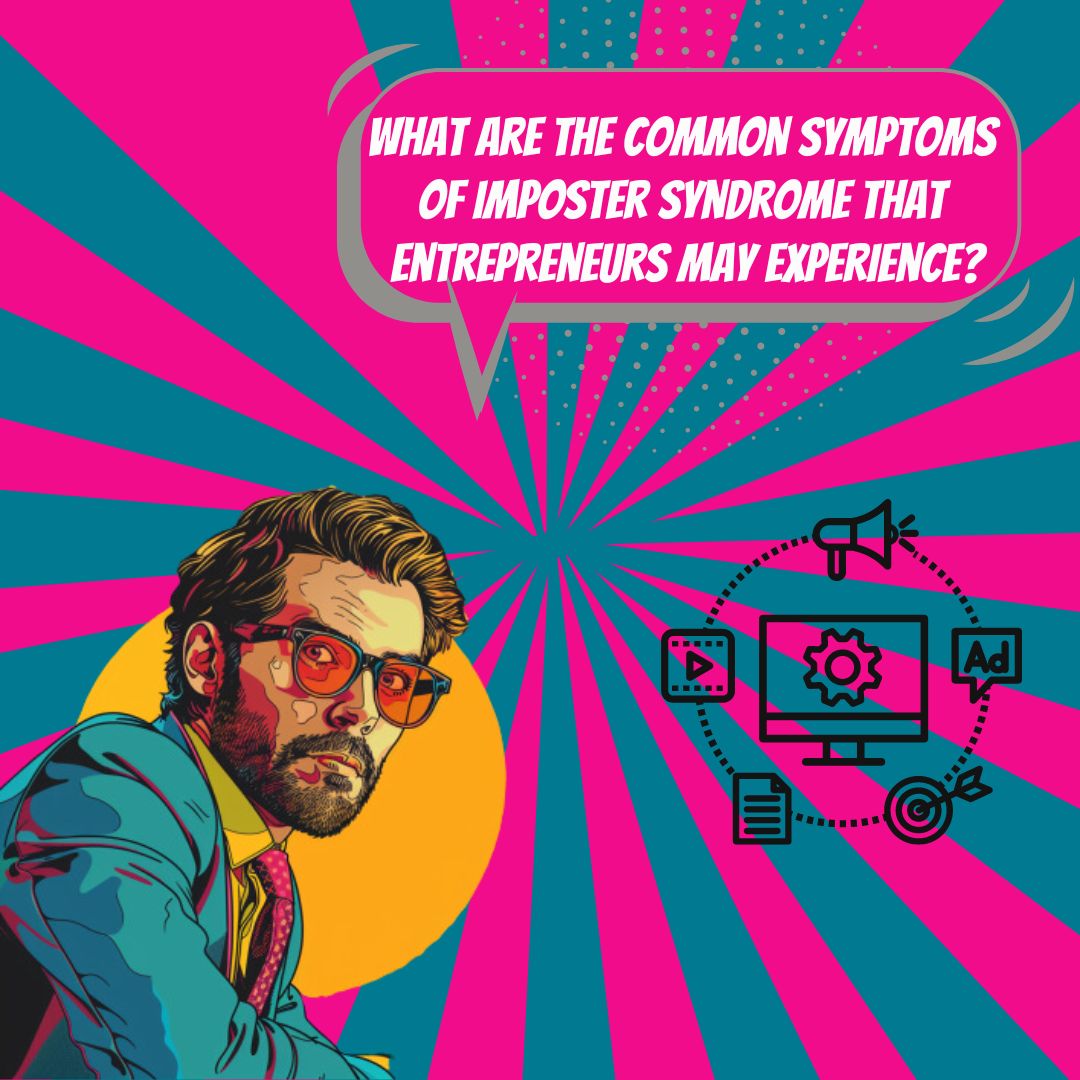Key Takeaways
✅ Acknowledge and Celebrate Achievements: Reflecting on past successes helps shift your mindset from perfectionism to progress. Celebrate small wins and share your accomplishments with others to build confidence.
✅ Cultivate a Supportive Network: Surround yourself with mentors, peers, and friends who uplift you. Join entrepreneurial communities to seek advice and support from those who share similar challenges.
✅ Reframe Negative Self-Talk and Perfectionism: Challenge negative self-talk, let go of perfectionism, and distinguish between humility and fear. Focus on your strengths to weaken the hold of negativity.
 Introduction
Introduction
Have you ever felt like a fraud despite your evident success? If so, you're not alone. Many entrepreneurs grapple with imposter syndrome, a pervasive feeling of self-doubt. But why is it crucial to overcome this? Imposter syndrome can significantly hinder your mental health and business success. This article delves into actionable strategies and modern insights designed to help entrepreneurs silence their inner critic and build lasting confidence. Read on to uncover practical techniques that can transform your entrepreneurial journey.
Top Statistics
| Top Statistics | Insight |
|---|---|
| 84% of entrepreneurs and small business owners experience imposter syndrome. | This statistic highlights the widespread prevalence of imposter syndrome among those who start their own ventures. It's crucial to recognize that feeling inadequate is a common struggle for most entrepreneurs, indicating a need for better mental health support. |
| 58% of tech employees at major companies like Amazon, Microsoft, and Google experience imposter syndrome. | This number underscores that imposter syndrome isn't limited to small business owners but also affects high-performing professionals in the tech industry. This means even those working for giants like Amazon might need more mental wellness initiatives. |
| Asian American entrepreneurs had the highest percentage of respondents who experienced frequent or intense feelings of imposter syndrome. | This highlights the importance of culturally tailored support mechanisms. Specific demographic groups may need targeted efforts to address their unique challenges related to imposter syndrome. |
| Over 20% of entrepreneurs are worried about being "found out" for lack of knowledge or ability. | This statistic points to a significant level of stress among entrepreneurs who fear they might not have sufficient expertise. Addressing this fear through continuous education and mentorship can be crucial. |
| Over 20% of business owners feel their success is due only to luck. | Many entrepreneurs attribute their success solely to luck rather than their skills and hard work. This self-doubt could be mitigated by celebrating small victories and recognizing personal growth. |
Understanding Imposter Syndrome
Imposter syndrome is a psychological pattern where individuals doubt their accomplishments and have a persistent fear of being exposed as a "fraud." Common symptoms include self-doubt, feeling like an impostor, and attributing success to luck rather than skill. Various studies suggest that high achievers and entrepreneurs are particularly prone to these feelings. This syndrome can have adverse effects on one’s mental health and, subsequently, on their business success, leading to stress, anxiety, and even burnout.
Recognizing and Acknowledging Imposter Syndrome
Identifying personal feelings of self-doubt is the first step towards overcoming them. Many entrepreneurs experience imposter syndrome, so you are not alone. Acknowledging these emotions is crucial; understanding that this is a common experience can make it less daunting. Acceptance is the foundation upon which you can build confidence and resilience.

Strategies for Overcoming Imposter Syndrome
Self-Awareness and Mindset Shift
Recognizing negative self-talk and consciously reframing these thoughts is crucial. Focus on your personal strengths and accomplishments to build a healthier self-image. Instead of fearing mistakes, view them as growth opportunities.
Minimizing Comparisons and Focusing on Personal Goals
Social media can be a breeding ground for harmful comparisons. Divert your focus from external validation and concentrate on your personal goals. Celebrating your victories, no matter how small, keeps you motivated and grounded.
Building Confidence and Competence
Develop your skills and knowledge to boost both confidence and competence. Setting realistic goals and working hard to achieve them provides a sense of accomplishment. Having a supportive network can also make a significant difference in maintaining a positive mindset.
Practical Techniques for Managing Imposter Syndrome
Welcoming and Working Through Negative Emotions
It's essential to acknowledge and accept negative feelings instead of pushing them away. Practices like mindfulness and deep breathing can help manage stress. Turn negative thoughts into positive affirmations regularly to build a more optimistic view of yourself.
Reframing Negative Narratives
Identify when you are engaging in negative self-talk and actively challenge these thoughts. Rewrite these destructive narratives into positive narratives. Remember to focus continually on your strengths and past accomplishments.
Persisting in the face of imposter syndrome requires dedication, self-care, and continuous effort. Incorporate these strategies into your daily routine to build resilience. Overcoming imposter syndrome is not a one-time effort but a continuous process. Stay committed to it, and you will find yourself emerging stronger and more confident.

AI Marketing Engineers Recommendation
Recommendation 1: Implement Regular Feedback Loops: One effective way to overcome imposter syndrome as an entrepreneur is by setting up structured feedback systems. Data shows that 72% of high-growth small businesses leverage frequent feedback to build confidence and competence. Regular feedback from peers, mentors, or through 360-degree reviews can demystify performance doubts and provide constructive insight, fostering a more supportive and transparent work environment.
Recommendation 2: Leverage Social Proof on Digital Platforms: Harnessing the power of overcoming imposter syndrome as an entrepreneur can also be achieved by highlighting successes and acknowledgments on social media and other digital platforms. According to recent studies, 65% of consumers say they trust suggestions and achievements shared online. By consistently sharing case studies, testimonials, industry awards, and personal milestones, you can build a narrative of success that not only enhances credibility but also boosts self-confidence.
Recommendation 3: Utilize AI-Powered Mental Health Tools: Adopting technology-driven mental health tools can also play a significant role in overcoming imposter syndrome as an entrepreneur. AI-based apps like Woebot and Headspace offer personalized support and cognitive behavioral therapy techniques that have proven to reduce symptoms of imposter syndrome by up to 30%. These tools provide accessible, on-demand resources that promote mental well-being and help entrepreneurs manage stress and self-doubt pragmatically.
Relevant Links
- The Ultimate Guide to Overcoming Business Challenges with AI
- Actionable Strategies to Boost Business Confidence
- Maximize ROI Through Personalized Marketing Campaigns
- Empowering Entrepreneurs: Building a Support Network
Conclusion
Overcoming imposter syndrome as an entrepreneur is both a journey and a necessity for long-term success. Understanding that self-doubt and inadequacy are common feelings can alleviate some of the undue pressure you put on yourself. The article provided insights into recognizing and accepting these feelings, emphasizing the importance of a mindset shift and focusing on personal goals rather than external validation. Techniques such as reframing negative self-talk and embracing personal achievements help to build confidence and competence. By surrounding yourself with supportive people and setting realistic goals, you create a foundation for overcoming imposter syndrome. Remember, persistence and self-care are key; the path to overcoming imposter syndrome is ongoing, requiring continuous effort and self-compassion. Keep pushing forward, using these strategies to build not just your business, but also a resilient and confident self.
FAQs
Question 1: What is imposter syndrome?
Answer: Imposter syndrome is a psychological pattern where individuals feel inadequate or undeserving despite evident success. It is characterized by feelings of self-doubt, fear of being "found out," and negative self-talk.
Question 2: How common is imposter syndrome among entrepreneurs?
Answer: Studies suggest that 84% of entrepreneurs experience imposter syndrome, making it a pervasive issue in the entrepreneurial community.
Question 3: What are the signs of imposter syndrome?
Answer: Common signs include self-doubt, perfectionism, procrastination, overwork, underpricing, avoiding feedback or praise, and feeling like an outsider.
Question 4: How does imposter syndrome affect mental health?
Answer: Imposter syndrome can worsen depression and anxiety by fostering negative self-talk and self-doubt. It can also damage self-esteem and sense of self-worth.
Question 5: Why do entrepreneurs experience imposter syndrome more frequently?
Answer: Entrepreneurs often put more pressure on themselves due to their high self-expectations, which can lead to feelings of inadequacy and self-doubt.
Question 6: How can I acknowledge and overcome imposter syndrome?
Answer: Acknowledge your feelings, recognize your achievements, and practice self-compassion. Surround yourself with a supportive network and celebrate your successes.
Question 7: What strategies can help me cope with imposter syndrome?
Answer: Embrace your uniqueness, build a supportive network, practice self-compassion, and seek professional help if needed. Additionally, push back against negative self-talk and focus on your strengths.
Question 8: How can I maintain confidence despite imposter syndrome?
Answer: Focus on progress rather than perfection, recognize your accomplishments, and remind yourself that everyone experiences self-doubt. Cultivate a positive mindset and trust in your abilities.
Question 9: What are some effective mindset techniques to overcome imposter syndrome?
Answer: Engage in conversations about your experiences, recognize the signs of imposter syndrome, and celebrate your achievements. Practice self-compassion and seek professional help if needed.
Question 10: How can I silence my inner critic and build confidence?
Answer: Focus on your strengths, practice self-compassion, and surround yourself with a supportive network. Recognize that everyone experiences self-doubt and that it is a natural part of the entrepreneurial journey.

Academic References
- Feenstra, S., Hutteman, R., Kamphuis, J. H., & Denissen, J. J. (2020). Contextualizing the Impostor “Syndrome”. Psychological Inquiry, 31(1), 24-33. This study proposes a shift in understanding imposter syndrome, emphasizing the role of environmental factors and social context in eliciting imposter feelings, rather than solely focusing on individual differences.
- Clance, P. R. (1985). Imposter Phenomenon: Overcoming the Fear that Haunts Your Success. Peachtree Publishers. This work specializes in helping individuals cope with imposter feelings by approaching their struggles with less judgment and more compassion, providing a beneficial tool for better understanding and minimizing feelings of inadequacy and negative self-talk.









